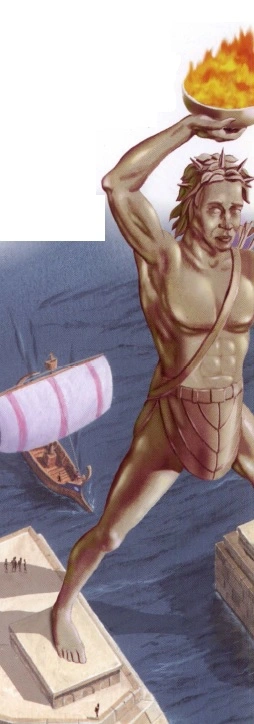Helios (Helius) (The sun god) Greek Helios was husband to Rhodos, the Nymph of the island of Rhodes, which he chose as his favored abode.
Publié le 26/01/2014

Extrait du document

Helios (Helius) (The sun god) Greek Helios was husband to Rhodos, the Nymph of the island of Rhodes, which he chose as his favored abode. Their children--Circe, Acetes, and Phaeton--were the first inhabitants of Rhodes. Helios is usually depicted as a charioteer who drove the Sun across the Earth from east to west each day. Helios was all-seeing and often called upon as a witness (see Demeter and Persephone, under Demeter). Helios (called Hyperion by Homer) appears in both the Iliad and the Odyssey; in the latter, the cattle of Helios (Hyperion) are victims of Odysseus and his crew of hungry mariners. In later times, Helios was identified with Apollo, and, in the late Roman empire, with Sol, one of the principal gods of the Romans.
Liens utiles
- Phaeton Greek Son of Helios, the sun god, and the Nymph Clymene.
- Iphicles Greek Halfbrother of the hero Heracles; son of Amphitryon, a prince of Tiryns, and his wife, Alcmene, who was a daughter of the king of Mycenae; husband to Automedusa, and later, to the youngest daughter of King Creon of Thebes.
- Phorcys (Phorcus; Old man of the sea) Greek An ancient sea god; son of Gaia and Pontus; husband to his sister Ceto.
- Dictynna (Lady of the Nets) Greek An ancient Cretan goddess, perhaps the goddess of Mount Dicte, which was later known as the birthplace of the Greek god Zeus.
- Robinson Crusoe (extrait) Daniel Defoe (...) In a little time I began to speak to him, and teach him to speak to me; and, first, I made him know his name should be Friday, which was the day I saved his life.





